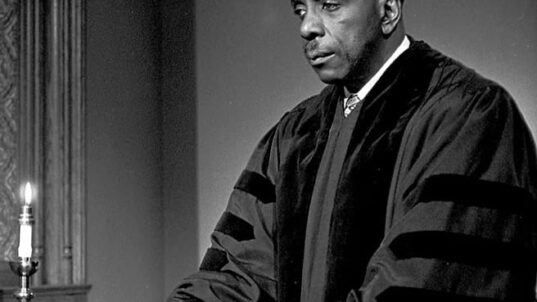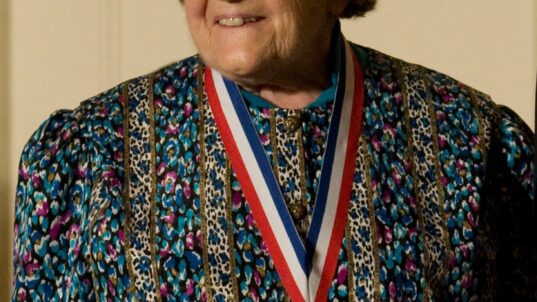
Photo by Arisa Chatassa on Unsplash
What are different ways that sports have meaning for us, whether at a personal level or a broader societal level?
The pandemic has made a lot of us think about what’s missing when sports are shut down or when we can’t do our normal fitness or sports activities. Thinking about the impact of sports on different dimensions of our lives was the heart of our explorations in the first of our four-part series of Community Conversations on the Future of Sports and Fitness. We’re aiming to be inclusive, so we’re using the term “sports” broadly to indicate whatever physical or fitness activities the participants think are relevant to consider. (We’re not just talking about team sports or competitive sports.) As always in our conversations, we’re exploring different perspectives collaboratively, helping each other to look at things beyond our own points of view. While a number of our participants started out thinking that there might not be much of importance to talk about with sports, they ended up changing their minds. As you’ll see in the summary below, they concluded that there are a lot of different dimensions to explore when it comes to sports and what they can mean for us as a society and as individuals.
We hope you’ll join these explorations in the second conversation on October 8 at 1pm-2:15 (register at this link):
October 8, 2020: Sports and fitness for life?
- What if we embraced the idea of “sports and fitness for life”—what could that mean for us as individuals and as communities?
- What’s the significance of sports and fitness for our development as healthy and flourishing individuals—or as healthy and flourishing communities?
- What questions or concerns would come to mind if we were to pursue an approach of “sports and fitness for life”?
Notes from the Community Conversation
What are different dimensions of sports for us to consider as topics of public or social concern?
Health and wellness
- Developing your mind, body and soul—holistic mental and physical health
- Key for healthy communities
- Stress reduction—in an increasingly stressful world
- The importance of having playful activities in our lives, throughout our lives
- Different sports for different times of life (shifting to different sports as we age or because of injuries)
- Aging—staying fit as we age, boosting physical and mental health
- A treatment for depression, anxiety, and other mental health concerns
- Sports can build or destroy healthy self-esteem and ego development
- Potential negative effects on mental health surrounding sports competition
- For example, boys demeaned for not being good at sports at their age, or girls being excluded
- Potential negative effects on health through injuries—especially recent concerns about brain trauma
Sports and Development
- Sports as a unifier, fostering community spirit, civic pride, bridging divides
- People come together across differences as players
- People come together across differences as fans (even rival fans can connect over the game)
- Sports can convey group identity, cultural identity, national identity (even if you don’t like a sport, it can bring everyone together)
- Get to know another country or culture through their sports
- Sports are like a second religion for some communities
- Fostering positive social change within communities, within countries, and among countries internationally
- Sports as a way to foster a more equitable society, combatting racism, sexism, ableism, etc.
- Sports can be a peacemaker, a form of diplomacy, reducing conflict
- International sports, the Olympics—a way to root for human excellence, not just national pride
- Sports can bring opponents together in play: they have to communicate, collaborate, see each other as equally human
- Traveling culture of some college sports brings people together across great distances
- Sports as a divider: being antagonistic to other teams or sharpening existing divides (political, class, racial, ethnic, national divisions)
- Sports mirror society, including all the disparities and hierarchies that cause problems in society
Ability status
- The mental and physical benefits of sports are key for people with disabilities
- Sports level the playing field, allowing people with disabilities to compete, making them feel like everyone else, like they belong
- This powerful sense of inclusion can help better integrate people with disabilities into society
- Disabled athletes are some of the most talented people, because they are constantly facing and surmounting challenges
Gender, Sex
- Our culture has a male dominated view of sports and what counts as “sport”
- We see types of sports through the lens of gender and gender stereotypes
- Great damage done to unathletic males who aren’t living up to gender stereotypes for sports at a given age
- Great damage done to females by excluding them from play, and from underfunding their sport opportunities
Race and Racism
- Sports can boost racial equity in a society and foster positive relations across racial divides
- Sports replicate existing divides: we often see teams of mostly black athletes putting their bodies on the line for mostly white team owners or white fans
Economics
- Sports are big business, which gives them a big societal impact
- There’s the business of elite sports and the entertainment industry—what people watch
- There’s the business of recreational sports—what most people do
- Sports as a source of revenue and development to cities and towns
- Economics of participation: money limits participation and restricts who benefits from sports
- Economics of college sports: who takes the risks and who benefits?
- Revenue sports in college seem more like a business than educational endeavor, with colleges driven by priority to make money through sports
- Professionalization of college sports, with most athletes focusing more on going pro than getting an education, blurring the lines between pro and amateur sports
- Olympics also seem overly commercialized
- Concern among some fans about missing “amateurism” in college and Olympic sports
- Even non-revenue college sports can have an economic pay-off—with a scholarship
- Money and gender—revenue sports tend to be traditionally men’s sports, with little attention to supporting women’s sports
- Economics of developing elite athletes
Education
- Sports as a way to develop ourselves as persons, fostering healthy development of our sense of selves, and healthy self-esteem
- Different values and capabilities come from different types of sports (e.g. individual or team sports)
- Sports develop life skills, soft skills, social-cognitive skills: learn how to persevere, work towards goals, communicate and collaborate with others, solve problems as a group, etc.
- Learning respect for the rules of the game, for fair play, for the referees
- Sports can help with creating school spirit
- For some schools, sports are the be all and end all
Governance of Sport
- Most countries have a Sports Ministry to coordinate sports policy
- The US doesn’t, which means there is lots of dysfunction and missed opportunities
- This has a negative impact on equity—e.g. most countries fund adaptive sports for disabled athletes through the sports ministry, but in the US it depends largely on private funds
- US could learn from what works well in other countries, if sports are important
- Assuring fair play
Competitive or Elite Sports
- Different countries take different approaches to develop elite athletes
- In China there are sports schools that focus on developing young athletes for elite competition
- European countries have club teams and leagues
- In the US opportunities are more haphazard and depend more on financial status (the wealthier have more opportunities)
- Competitive or organized sports are not the whole of sports—plenty of people enjoy sports and fitness activities but don’t enjoy competition
- People get so competitive they can lose sight of what sports are all about
- Doping for competitive advantage
Families
- Families invest a lot in kids’ sports—travel all over for sports opportunities
- Many parents try to live through their kids’ sports, get in the way of their kid’s enjoyment of sports
Entertainment
- Sports as a shared distraction
Language and Culture
- Sports infiltrate our vocabulary, so many of our expressions or metaphors come from sports
Environment, Climate, and Geography
- Where we live impacts the sports we play (e.g. winter sports in the north)



